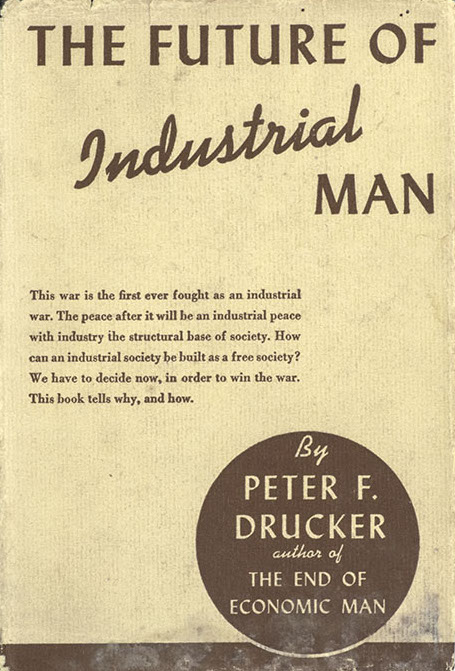
Hunter Baker, J.D., Ph.D. is provost and dean of the faculty of North Greenville University. He is also the author, most recently, of Postliberal Protestants: Baptists between Obergefell and Christian Nationalism.
Posts by Hunter Baker
September 30, 2025
As an American who grew up amid the Cold War, patriotism had an obvious attraction. Who wouldn’t prefer the United States of America, the Declaration of Independence, the U.S. Constitution, the Bill of Rights, free markets, belief in God, and rock and roll over the gray, atheistic, materialistic totalitarianism of the Soviet Union.
Continue Reading...
January 23, 2020
This is the seventh in a series of essays on Peter Drucker’s early works.
In his 1942 book,
The Future of Industrial Man, Peter Drucker pointed to the Christian anthropology of man as a promising building block for society.
Continue Reading...
November 20, 2019
Why do I care about Chick-fil-A’s decision to drop Salvation Army and Fellowship of Christian Athletes as they seek to properly “align their values” and make sure people understand “who they are”?
Continue Reading...
November 07, 2019
We can count on seeing certain stories in the news as part of a pool of general interest that changes over time. Consider the endless stories questioning the value of college education, pronouncing the harms of artificial sweeteners, describing storms in the Atlantic, or detailing various crises at the border.
Continue Reading...
October 24, 2019
This is the sixth in a series of essays on Peter Drucker’s early works.
Peter Drucker recognized the revolutionary aspect of the corporate form.
The older corporations wielded something close to sovereign authority as they essentially ruled the territory wherever they traded and planted.
Continue Reading...
September 13, 2019
This is the fifth in a series of essays on Peter Drucker’s early works.
Peter Drucker published
The Future of Industrial Man in the midst of World War II (1942). He was conscious of the need to defeat authoritarian governments beyond the battlefield.
Continue Reading...
September 05, 2019
When I moved to Jackson, Tenn, in 2010, I found that I had come to the worst movie theater town I’d ever lived in.
We had a 16-screen theater that was dirty and run down with uncomfortable seating.
Continue Reading...
August 28, 2019
This is the fourth in a series of essays on Peter Drucker’s early works.
It was sometimes said of fascists that they “made the trains run on time.” In
The End of Economic Man, Peter Drucker saw that fascists “proved” their fitness through effective organization.
Continue Reading...
August 22, 2019
This is the third in a series of essays on Peter Drucker’s early works.
As I explained in an earlier post, Drucker recognized that fascists were able to take advantage of the dissatisfaction that many experience in a society dominated by money.
Continue Reading...
August 13, 2019
This is the second in a series of essays on Peter Drucker’s early works.
In
The End of Economic Man, Peter Drucker was impressed (not pleased, but impressed) with the ability of fascists and communists to gain the support of millions of people by offering an alternative to economic status within a society.
Continue Reading...





